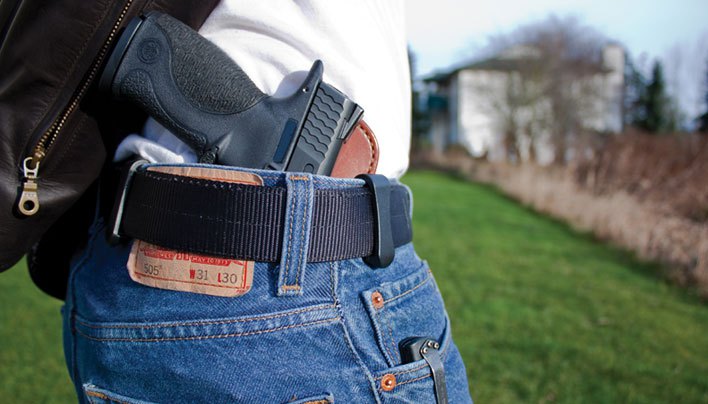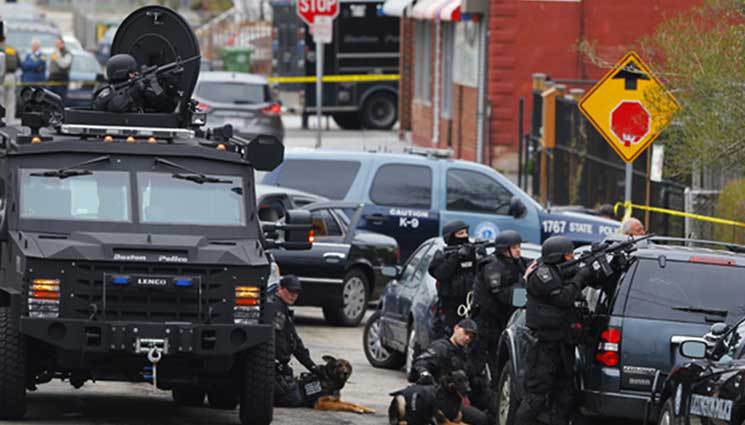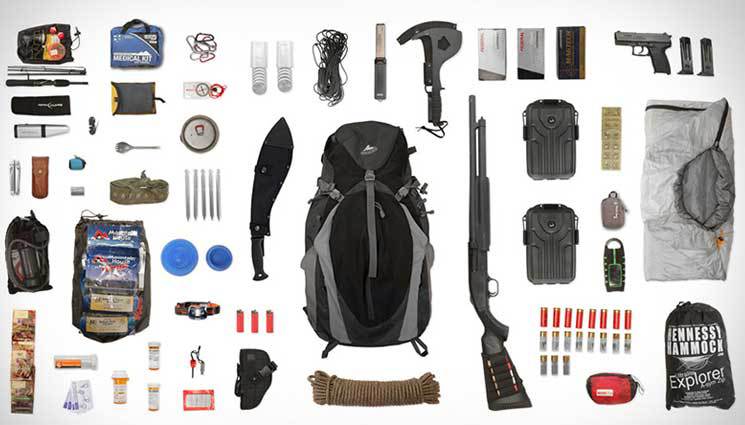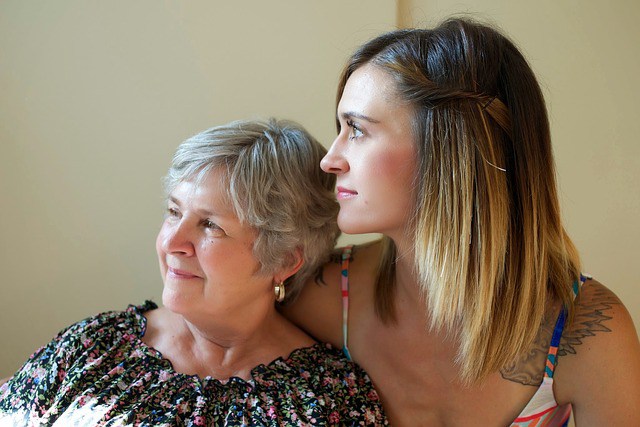Obligation To Carry Concealed
To the concealed carry permit holder, you have a very important responsibility. The responsibility to carry a handgun is not one that you should take lightly, it is a key factor in deciding whether or not you or your family will be safe and at the same time whether or not you will take a life. Guarding your family and ending the life of a bad guy is not a choice you should make with the same amount of thought as to what you are going to watch on TV tonight. This should be something that you are clear in your mind of the reasons why, and the possible ramifications of your choices.
Why Carry Concealed?
There are a lot of reasons why an individual would choose to carry a concealed handgun but they almost all boil down to personal security or protection. Why else would you carry a firearm that is capable of killing someone unless you were prepared to use that amount of force to do just that? If you weren’t willing or able to pull the trigger, there would be no need to carry would there?
Carrying a concealed firearm should be done with the full intention that one day you may need to draw your weapon, point it at the threat and pull the trigger. If you don’t understand this basic fundamental and more importantly, are prepared to do just that, you should not be carrying concealed in the first place.
For me, the motivation behind carrying concealed was not because of a threat on me or my family. I had no out of the ordinary experiences in my past that made me fearful for my safety or the safety of my loved ones. I look at this from a practical standpoint. I think Wayne LaPierre summed it up nicely in response to the outcry over the Newton School shootings when he said, “The only thing that can stop a bad guy with a gun is a good guy with a gun.” I agree completely.
It wasn’t a school shooting that convinced me to carry either, but Wayne’s comment resonates perfectly with my own philosophy. As a legal carrier of firearms, it may come down to me standing in front of a “bad guy” with a gun. I don’t view this as a preordained destiny from God that I would be placed in any situation like this, but if I am, I want to make sure I am prepared. If I am in that situation, I will accept the responsibility of being the good guy who potentially stops the bad guy.
Obviously my family’s safety was first and foremost in my mind, but like school shootings, or church shootings or mall shootings, I believe that the more legal, responsible people we have with firearms, the safer everyone else would be if a bad guy got it in his head to harm people.
Never leave home without it.
I know a couple of people who have their concealed carry permits, but they never have their weapon on them. When I ask why, it is usually one of two responses. Either they laugh and say, “I don’t have to worry about anything here do I?” or that the firearm is bulky, doesn’t go with their outfit, not easily concealed, etc.
If you have a permit, you should carry your firearm everywhere you go. I have mine with me even sitting around the house in my sweatpants. Why? Because you will almost never foresee the time and place you will need it. Leave it at home one day and the church you are attending may be paid a visit by a lunatic who wants to meet God, really. Have that firearm in your bedroom and someone may kick down the door while you are watching American Idol. You never know, so it is your duty and obligation to carry your firearm with you at all times. How are you going to protect yourself or anyone else if your concealed carry is under the bed?
When should you use your weapon?
Carrying concealed, as I explained above, is not to be taken lightly. If you are carrying, you must think through the possibilities and potential threats, escalation and your actions.
Let’s say you are a woman and you are work evenings at a retail store. When you leave at night, you may have to go out into a dark parking lot or a dark alley. Maybe this isn’t in the best part of town, maybe it is. Regardless, there is a chance someone could approach you on your way to your car, but you are carrying a concealed handgun. Out of the corner of your eye you see a man walking towards you. He is mumbling something that you can’t quite make out and he is closing the distance between you and your car. As he gets closer he is still mumbling and you see a knife in his hand. What do you do?
Every situation that you could possibly face is different so there is no one size fits all answer to using lethal force. As we saw with the George Zimmerman case, there was much arguing and heated debate over the “Stand your Ground” law in Florida. First, you should know the laws of the state you are carrying in, but a general guideline is that your life must be in jeopardy before you can justifiably kill someone. You can’t kill someone who is being rude or talking too loudly in a movie theater, or who stole your parking spot. This is life and death we are talking about so there can’t be any grey area.
If you do have to use your firearm, the police will be involved and they will be scrutinizing you very carefully to ascertain whether or not the person you shot (just like George Zimmerman) was a real threat. If they decide that you killed someone who didn’t deserve to die, guess who goes to jail?
One fallback you have is that the simple fact you are carrying, may be a deterrent. Without shooting anyone you can let them know that you will, if need be. Drawing your firearm and having it pointed down at the ready position (down) is a first step. Forcefully warning your attacker that you have a gun and you will use it may defuse the situation. They leave, you are both alive and you don’t go to jail.
You must play out scenarios in your mind and make sure you understand what you will do in various situations. You want to clearly deal with the threat if you are ever forced into that reality.
Why does all of this matter?
In order to be prepared, we look at a lot of different aspects of our lives, possible threats that could impact us and make plans for how to mitigate the pain or suffering we would go through in the event that any of those threats come to pass. Carrying a concealed firearm, just like storing food for an emergency is one type of survival preparation. You carry survival kits for when your car breaks down in an emergency. You carry a Get Home Bag if something happens and you need to make it back home, right?
Carrying a concealed firearm is what you do if you are planning to survive a bad guy trying to kill you or someone else. If you have foresight to get your permit, carry a weapon and have thought through the ramifications of deadly force, you have a duty to yourself and the other good guys around you to have this with you and be prepared to use it.
On a different note, here’s some other self-sufficiency and preparedness solutions recommended for you:
The Lost Ways (The vital self-sufficiency lessons our great grand-fathers left us)
Survival MD (Knowledge to survive any medical crisis situation)
Backyard Liberty (Liberal’s hidden agenda: more than just your guns…)
Alive After the Fall (Build yourself the only unlimited water source you’ll ever need)
The Lost ways II (4 Important Forgotten Skills used by our Ancestors that can help you in any crisis)
The Patriot Privacy Kit (Secure your privacy in just 10 simple steps)
To the concealed carry permit holder, you have a very important responsibility. The responsibility to carry a handgun is not one that you should take lightly, it is a key










